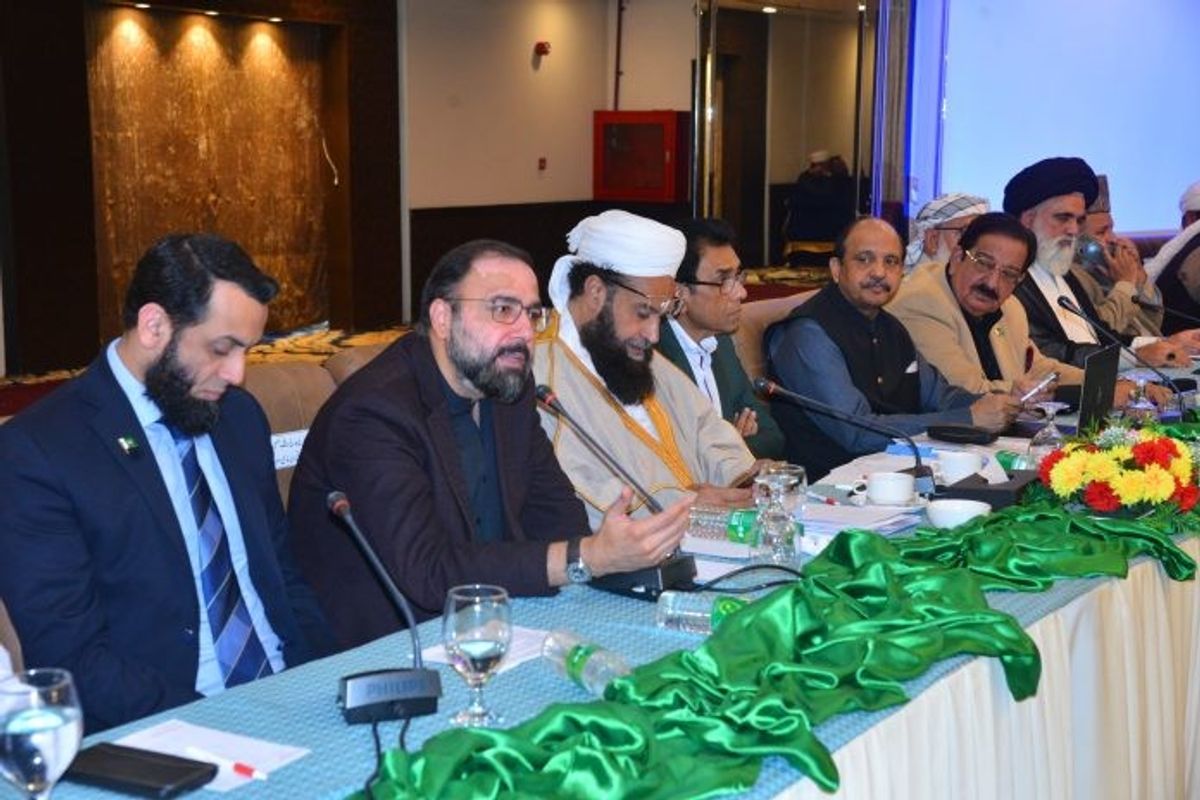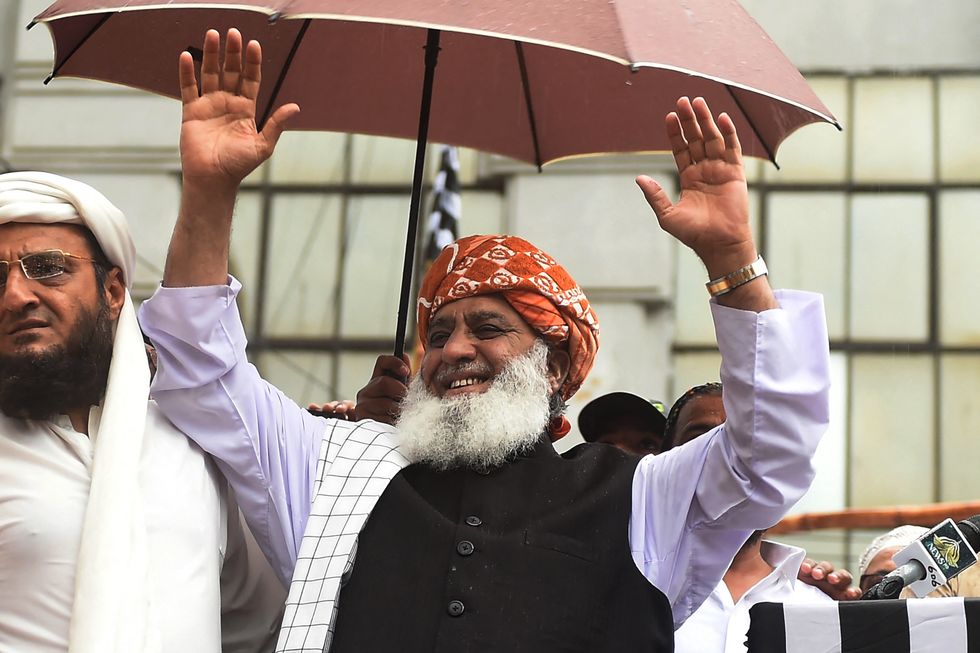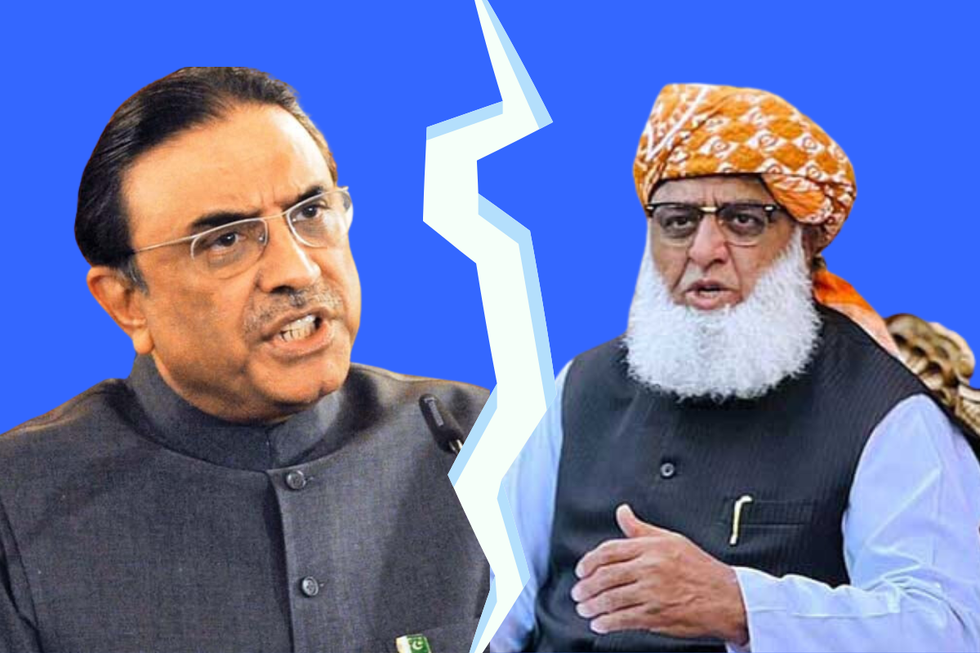Pakistan’s madrassas divided as 10 federations reject JUI-F registration bill
Ten of Pakistan’s 15 madrassa federations oppose changes, urging the government to preserve the current system

Javed Hussain
Correspondent
I have almost 20 years of experience in print, radio, and TV media. I started my career with "Daily Jang" after which I got the opportunity to work in FM 103, Radio Pakistan, News One, Ab Tak News, Dawn News TV, Dunya News, 92 News and regional channels Rohi TV, Apna Channel and Sach TV where I worked and gained experience in different areas of all three mediums. My journey from reporting to news anchor in these organisations was excellent. Now, I am working as a correspondent with Nukta in Islamabad, where I get the opportunity of in-depth journalism and storytelling while I am now covering parliamentary affairs, politics, and technology.

The matter of madrassa registration bill was discussed at a high-profile meeting in Islamabad on Monday, December 9, 2024.
Associated Press of Pakistan (APP)
Bill seeks to shift madrassa registration to Societies Act 1860
DGRE warns changes risk education for 2.3M madrassa students
Scholars reject politicization, demand system remain under Education Ministry
A major divide has surfaced among Pakistan’s 15 madrassa federations over a proposed law governing religious schools, introduced by the religio-political party Jamiat Ulema-e-Islam-Fazl (JUI-F). Ten federations have firmly opposed the bill, with the federal government backing their stance.
The JUI-F has become the center of intense political negotiations after its leader, Maulana Fazlur Rehman, threatened to march to Islamabad last week. The crisis stems from President Asif Ali Zardari's delay in signing the Societies Registration Amendment Act 2024, a bill aimed at changing the registration procedure for madrassas.
Speaking at a public gathering in Sukkur on November 28, Rehman warned that if President Zardari fails to sign the law by December 8, his party will lead a protest march to the capital.
The proposed bill seeks to shift madrassa registration from the Ministry of Education to the Societies Act of 1860. Opponents argue the move contradicts existing laws and jeopardizes the madrassa education system, which serves over 2.3 million students nationwide.

The matter was discussed at a high-profile meeting in Islamabad on Monday. Attendees included Minister for Education Khalid Maqbool Siddiqui, Minister for Religious Affairs Chaudhry Salik Hussain, Minister for Information Attaullah Tarar, and DG Directorate General Religious Education (DGRE) Major General (retd) Dr. Ghulam Qamar.
Religious scholars representing various madrassa boards from across Pakistan were also present. Notable participants included Chairman of the Federation of Madrasas Allama Tahir Ashrafi, Chairman of the Council of Islamic Ideology Dr. Raghib Naeemi, Chairman of the Ruet-e-Hilal Committee Maulana Abdul Khabir Azad, Mufti Abdul Rahim (Deoband), Khurram Nawaz Gandapur (Barelvi), Allama Jawad Hussain Naqvi (Shia), and representatives from the Ahle-Hadith federations.
The meeting unanimously passed a resolution rejecting any attempts to alter the current madrassa system. The resolution demanded that seminaries remain under the Ministry of Education and not be subjected to changes under external or political influence.
“The future of millions of students is linked to this system, and it cannot be abolished under any pressure,” the resolution stated. “All legislative changes must involve consultation with madrassa leaders.”
DGRE highlights contradictions
DGRE chief Dr Ghulam Qamar criticized the amendment bill, revealing that it was not even considered by the federal cabinet before its passage. “How can legislation proceed when 10 out of 15 federations oppose it?” he asked.
Dr Qamar underscored the contradictions, saying madrassas are educational institutions and should remain affiliated with the Ministry of Education, not the Societies Act of 1860, which applies to industries and commerce.
- YouTubewww.youtube.com
“Under the 2019 agreement, madrassas were registered with the Ministry of Education. Students are now studying modern subjects like Mathematics, Science, and IT alongside religious education. Changing this system jeopardizes their future,” he explained.
He noted that 13,000 madrassa students are currently pursuing matriculation and FSC exams. “What will happen to these students if the system is disrupted?” he asked, adding that technical courses in IT, marketing, and vocational skills are also being introduced in madrassas.
Political influence criticized
Mufti Abdul Karim, Chairman of Wafaqul Madaris al-Rizvia, accused JUI-F leader Maulana Fazlur Rehman of politicizing the issue. “The bill is 100% contradictory to existing laws,” he said.
“The state has avoided blackmail this time,” Karim asserted. “Fazlur Rehman does not represent madrassas. He leads a political party, and our seminaries must remain separate from politics.”

Karim claimed that if necessary, they could mobilize 100,000 supporters. “Madrasas are educational institutions, not political factories. No changes will be accepted without consulting all stakeholders.”
Minister for Religious Affairs Chaudhry Salik Hussain defended the president’s rejection of the bill. “The president has the authority to reject any law for further consideration,” he said. “This bill is being discussed widely, but such delays are not unusual.”
Hussain confirmed that discussions with Maulana Fazlur Rehman were ongoing to resolve the issue.
Call for dual system
Mufti Abdul Rahim, President of Majma-ul-Uloom Al-Islamia Deoband, stressed maintaining the 2019 agreement that placed madrassas under the Education Ministry. “If some federations want to register under the Ministry of Industries, let them. But don’t drag all 18,000 madrassas into this,” he argued.
Rahim pointed out that the Directorate General of Religious Education (DGRE) had made registration easier. “The solution lies in resolving issues within the existing framework instead of forcing unnecessary changes,” he said.
- YouTubewww.youtube.com
He added that modern education in madrassas must continue, combining religious and worldly knowledge. “We’ve come a long way—students are now learning IT, science, and vocational skills. Why disrupt progress?”
The rift among madrassa federations reflects deeper political and administrative tensions. With millions of students at stake, religious scholars and officials have called for resolving the matter through consultation while maintaining the integrity of Pakistan’s madrassa education system.






Comments
See what people are discussing